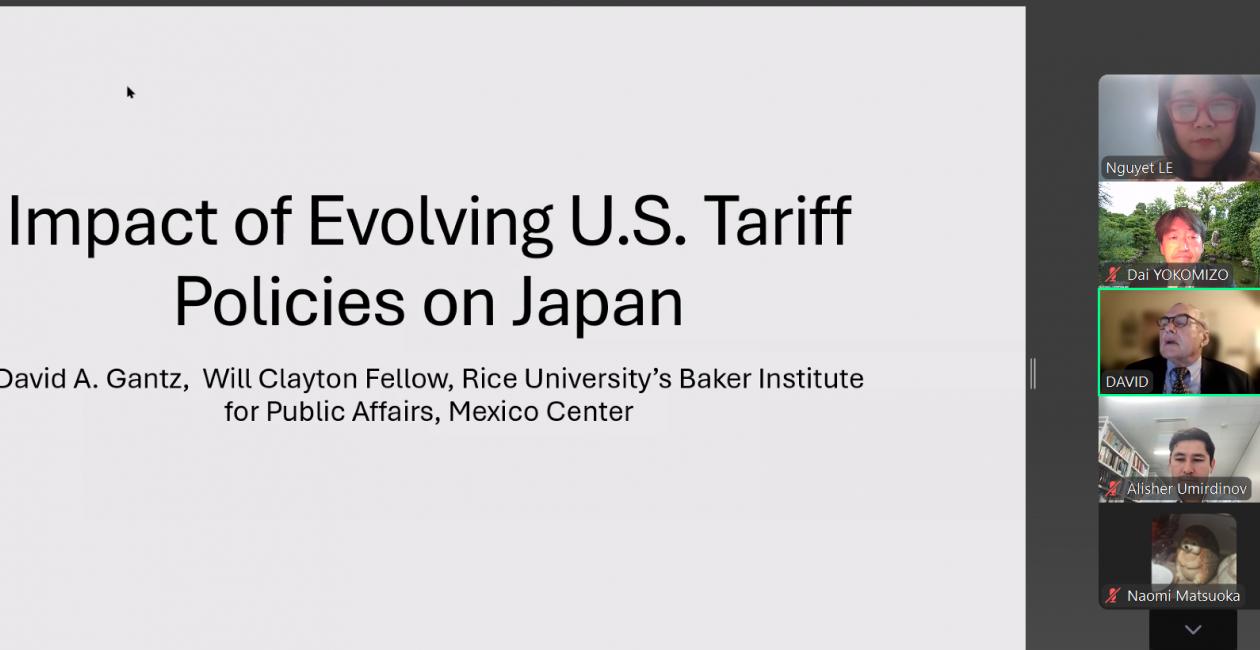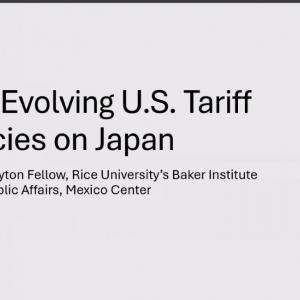

David A. Gantz, the Will Clayton Fellow in Trade and International Economics at Rice University's Baker Institute for Public Policy and Samuel M. Fegtly Professor of Law Emeritus at the University of Arizona, delivered a special lecture to the faculty and students of Nagoya University’s Graduate School of Law (GSL) on June 20, 2025. His lecture, titled “Impact of Evolving U.S. Tariff Policies on Japan,” focused primarily on the effects of U.S. tariffs on automobiles, auto parts, and other transport equipment.
Professor Gantz has taught and written extensively on WTO and USMCA (formerly NAFTA) trade law, dispute resolution, and a wide range of international trade and investment issues. This was his second lecture at Nagoya University, following a previous talk in May 2010 on NAFTA and WTO dispute settlement, presented at the Faculty of Law and the Graduate School of International Development.
In his lecture, Professor Gantz first provided a detailed explanation of current U.S. tariffs, particularly those implemented under the Trump Administration, and assessed their legality under both U.S. and WTO law. He then examined the potential impact of these tariffs on Japan, including Japanese companies operating or exporting from countries such as China, Taiwan, Vietnam, Canada, and Mexico. Finally, he discussed the broader implications of U.S. tariff policy on the global trading system, as well as on the U.S. and its trading partners.
Following his insightful presentation, Dr. Nguyet LE, an alumna of Nagoya University GSL, offered brief commentary on Professor Gantz’s remarks.
The event drew such strong interest that moderator Professor Dai Yokomizo extended the session beyond its scheduled time. During the Q&A segment, Professor Gantz addressed questions concerning the future of the world trading system—especially the WTO, the structure of international economic law courses, the influence of U.S. domestic courts on trade policy under the Trump Administration, and the implications of U.S. trade policy for smaller developing countries. He emphasized that many of these outcomes will depend heavily on whether the U.S. economy enters a recession, asserting that the future direction of U.S. foreign economic policy will largely hinge on domestic economic performance.
This special lecture was part of the “Lawyer Training Program for Globalization”, funded by a generous donation from the Shinnippon-Hoki Foundation.